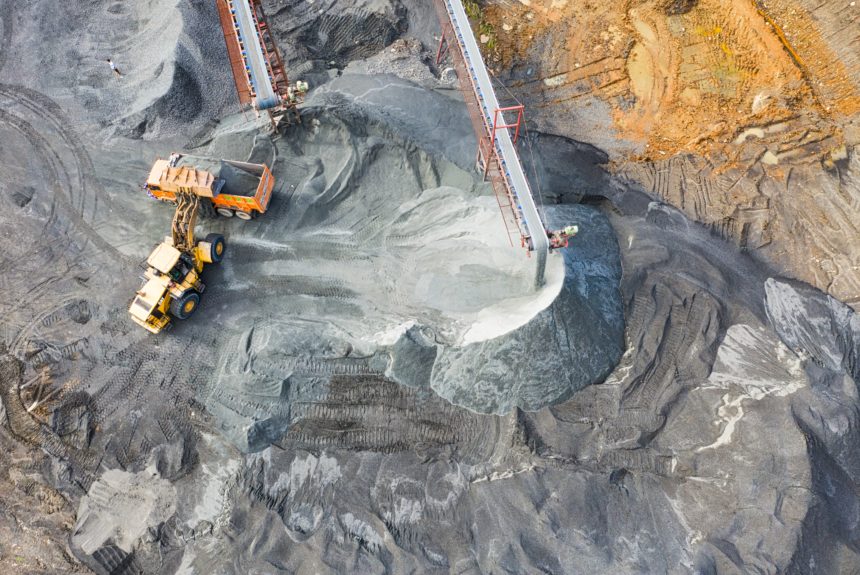Rare earth elements (REE) are 17 natural elements that have become essential to America’s national security and economic prosperity. REE are needed to manufacture a multitude of products, including cell phones, batteries, airplanes, solar panels, satellites, and military technology, among many others.
Currently, the United States relies on China for about 80% of REE. This overreliance on China for these critical elements poses a serious supply chain risk that endangers many sectors of our economy. This kind of power should not be held by any U.S. competitor. Moreover, Chinese REE dominance harms the environment, as many of the country’s mines are powered by coal and are subject to very poor environmental standards.
As we move toward an energy future built on clean energy sources, America’s REE supply chain must be less reliant on China and more reliant on ourselves and key allies.
Facts vs. Myths
- FACT: REE are essential to the production of clean energy and modern technologies, including military equipment.
- MYTH: We can trust China to keep supplying our REE requirements.
- FACT: By mining in the United States, we can ensure higher environmental standards and a shorter supply chain.
- MYTH: Mining is always bad for the environment and should be prevented.
The Importance of Rare Earth Elements
- Renewable energy technologies rely on REE
- Silicon is by far the most common semiconductor used in solar cells.
- Gold, silver, and other REE are needed to build batteries for electric vehicles, energy storage technologies, etc.
- REE protect our national security.
- Missile guiding systems, fighter jets, and other military technologies rely on REE.
- A 2018 study conducted by the U.S. Department of Defense (DOD) states that “declines in manufacturing employment, and slow output growth for many manufacturing sectors have created key vulnerabilities and weaknesses that potentially threaten the nation’s defense-related manufacturing capabilities.”
- A reliable REE supply chain gives us greater influence in international markets.
- The global REE market is projected to be worth more than $14 billion by 2025.
- Currently the United States has nine lithium battery megafactories, while China has 107. Improving our supply chain can give us more control in this market.
Markets vs. Mandates
- The U.S. has one of the longest permitting processes for new mining projects, in the world.
- The complex permitting process can take anywhere from ten to thirty years, far longer than the global average. Australia and Canada, for example, take two years.
- This backward permitting process, held up by bureaucracy, disincentivizes private sector investments in our mining industry, hurting America’s global competitiveness.
- The largest REE mine in the U.S., Mountain Pass in California, earns $100 million in annual revenue but has to outsource processing of all of its mined materials to China, which has the necessary processing facilities.
- This creates a vulnerable cross-Pacific supply chain, adding unnecessary shipping costs and carbon emissions for American-sourced ores.
- Ideally, REE businesses could flourish in the U.S. without government support due to global market demand. China, however, has spent decades flooding the global market with subsidized prices to bankrupt its competitors. The U.S. must combat this with a public-private strategy that promotes international competitive markets.
How to Improve our Rare Earth Element Supply Chain and Industry
- Modernize the permitting process to reduce bureaucratic red tape.
- Reducing the permitting process from between ten and thirty years to just two would reduce operating costs and incentivize greater private sector investment.
- Diversify our supply chain to include open trade with allies such as Japan and Australia.
- Japan built its own supply chain outside of China when it was cut off by the Chinese in 2010. This resulted in China’s global market share dropping from 95% to 70%.
- Australia, an important Indo-Pacific ally, also has abundant reserves of all 17 REE.
- Invest in REE technology innovation.
- As seen in the case of Mountain Pass, America does not have adequate processing facilities for mined rare earth minerals. This will require upfront R&D.
In Summary
- Rare earth elements are essential to many sectors of our economy, including renewable energy, manufacturing, and defense equipment.
- Currently, China supplies about 80% of our REE, setting up a potential supply chain disaster.
- In order to improve our domestic supply chain we must modernize the permitting process to open mines, invest in our mining industry, and diversify our supply chain to include trade with allies such as Japan and Australia.
- This is not only an environmental concern, but also an important national security issue.


